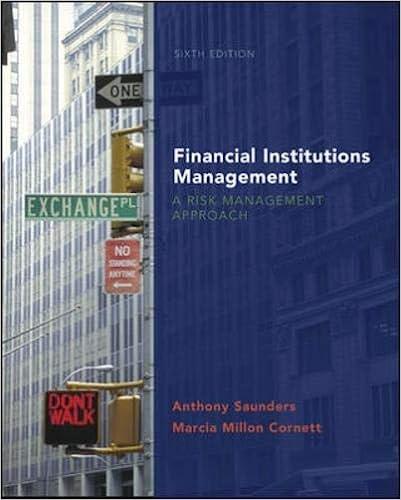Question
One goal of the Dobb-Frank Wall Street reform is to end the too big to fial problem. How does it propose to do so? Why
One goal of the Dobb-Frank Wall Street reform is to end the "too big to fial" problem. How does it propose to do so? Why might it fail? (Bold words are options to answers).
The governments implicit willingness to bail out the creditors of a large intermediary causes the too big to fail (TBTF) problem, contributing to moral hazard or adverse selection. For example, if investors believe that an institution has TBTF status, they perceive relatively less or more risk when lending to it. Thus, the TBTF intermediary can borrow at a lower or higher interest rate and take on more or less risk. Dodd-Frank could fail to eliminate TBTF if investors doubt the willingness of the government or TBTF banks to let TBTF banks fail or adopt living wills.
Dodd-Frank attempts to limit the mechanisms for government bailouts. It does this through the following means:
Instructions: You may select more than one answer of the four.
Subjects large institutions to regular stress tests.
Calls for higher capital requirements.
Limits the FDIC's guarantee powers.
Requires all banks to have living wills.
Step by Step Solution
There are 3 Steps involved in it
Step: 1

Get Instant Access to Expert-Tailored Solutions
See step-by-step solutions with expert insights and AI powered tools for academic success
Step: 2

Step: 3

Ace Your Homework with AI
Get the answers you need in no time with our AI-driven, step-by-step assistance
Get Started


